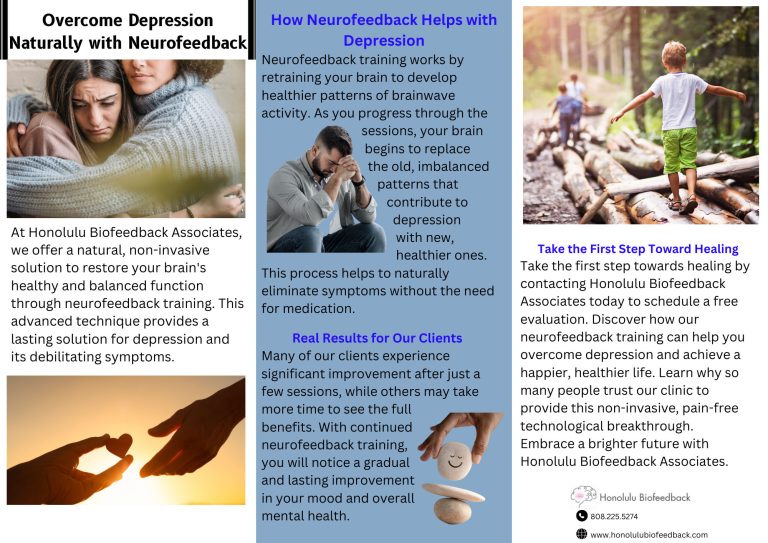Depression
Rediscover Your Passion for Life
Depression ranks among the top causes of disability in the United States (NIMH). It manifests as a mental health condition marked by profound sadness, hopelessness, and a loss of interest in once-enjoyable activities and relationships. Left unaddressed, it can lead individuals to contemplate suicide due to overwhelming despair. However, there is hope. At Honolulu Biofeedback Associates, we’ve assisted countless individuals in overcoming the debilitating effects of depression, enabling them to rediscover the pleasures of life once more.
Understanding Depression
Depression is the most common mental disorder in our country, affecting millions of Americans each year. It is characterized by persistent feelings of sadness and a loss of interest in daily activities. Major Depressive Disorder can disrupt normal routines and relationships, making it difficult for individuals to enjoy life fully.
Causes of Depression
Depression can stem from various factors, including neurological issues, genetics, environmental triggers, medical conditions, and personal temperament. Researchers emphasize that the connectivity and growth of nerve cells, along with the functioning of nerve circuits, play a crucial role in its development.
How Neurofeedback Training Helps Depression
Neurofeedback training focuses on enhancing the brain’s ability to form new and healthier nerve connections, as well as regulating neurochemical flow. By improving brain function, neurofeedback promotes a more positive and optimistic outlook on life.
The Neurofeedback Process
Beginning with a painless qEEG test to measure brainwave patterns, Dr. Kari Leong at Honolulu Biofeedback Associates designs a personalized neurofeedback protocol to optimize brain function. Each 50-minute session is comfortable and relaxing, aiming to enhance overall well-being with lasting benefits.
We're Here to Support You
Contact us today for a consultation to discover how neurofeedback training could be the solution you need. Explore Honolulu Biofeedback’s effective, non-invasive approach to addressing depression.


